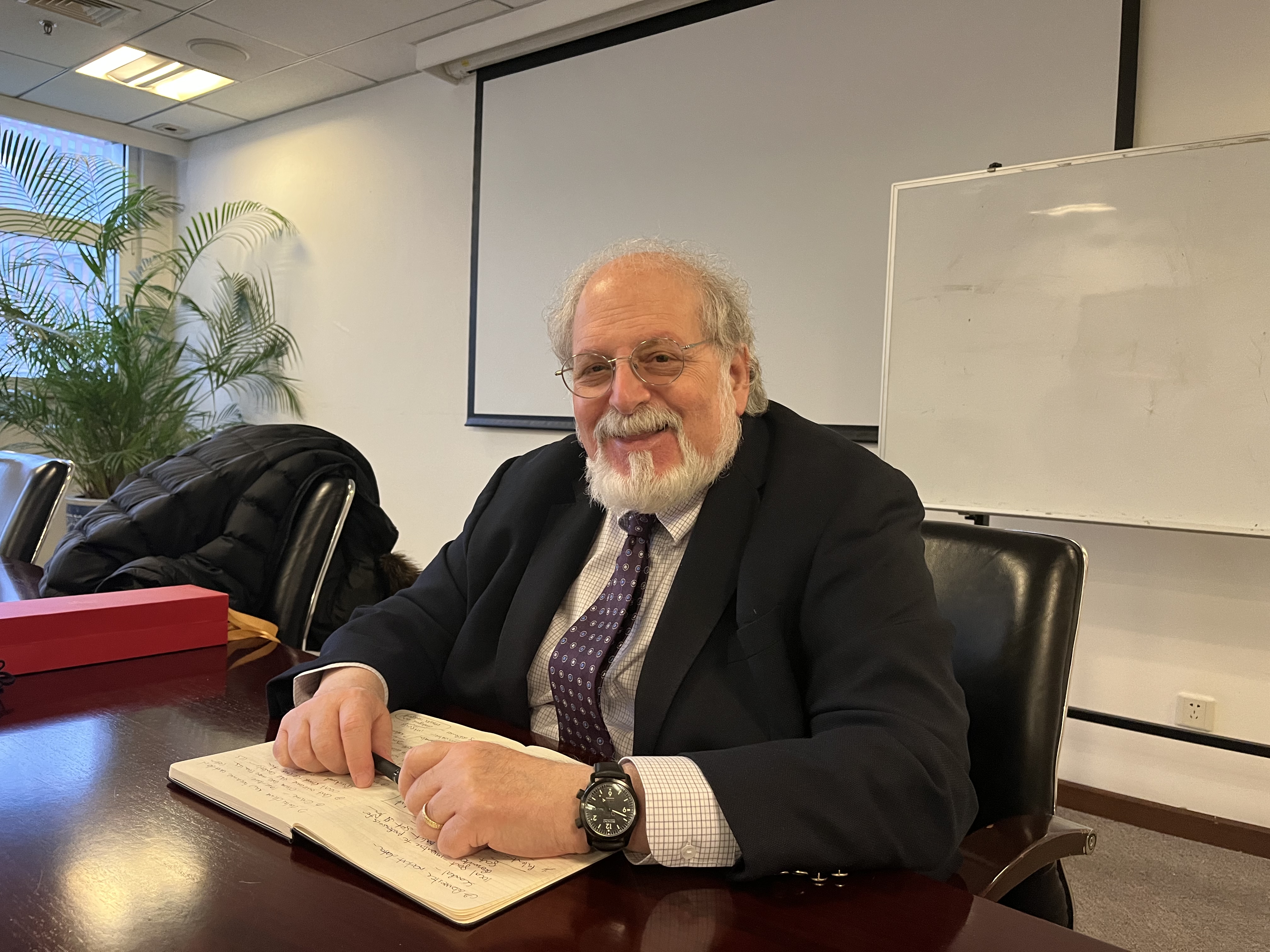China-US Relations Need Dialogue, Understanding, Communication

Professor Denis Simon. (PHOTO: S&T Daily)
By?LONG?Yun?&?QI?Liming
"After reading this book, I hope you can now understand why your father keeps running to China, a marvelous country," These are the words Professor Denis Simon wrote to his children in his first book, Technological Innovation in China: The Case of Shanghai Semiconductor Industry, which he published three decades ago.
Recently, in an interview with Science and Technology Daily, Simon said that while his trips to China did keep him away from his children, they also helped him gain a deeper understanding of Chinese people and the country, making him more determined to foster collaboration and hopefully mediate the disputes between China and the U.S.
Simon retired in June 2020 from Duke Kunshan University in China, where he was executive vice president for five years. Currently, Simon serves as the senior adviser to the President for China Affairs at Duke University.
Over the past 40 years, he has devoted himself to studying China's talent cultivation system and the development of China's national innovation system. More importantly, as an old China hand, his role in promoting Sino-American exchanges is much more visible to the public.
In 2006, Simon was presented with the Chinese Government Friendship Award, the country's highest honor for foreign experts who have made a tremendous contribution to international cooperation.
A witness of China's growth
In 1981, Simon made his first journey to China from America, which he characterized as "a dream come true." Even today, he still remembers every moment of the four-week journey and the scenes of China at that time, which he recorded on 56 rolls of film. He found it difficult to believe that China has made such rapid progress and was so fully integrated into the mainstream of international society at the onset of its opening up.
Forty years later, when talking about China's development, he first mentioned the social changes led by China's growing connectivity with the outside world, adding that "China has benefited tremendously from its global engagement."
Regarding the sci-tech field, he highlighted that Chinese universities are on the rise in global rankings, producing a greater quantity and higher quality of research than ever before. "China now is an important part of the global knowledge system in terms of publication, cited academic papers and patents registered," he said, adding that the quantity in this field is now taking a back seat to quality.
In addition, China's world-renowned infrastructure boom is also something he underscored. He was impressed by its most advanced transportation system and "cashless economy."
From his professional perspective, Simon said one of the most significant factors attributed to China's growth is that, "Chinese leaders showed a willingness to engage in fundamental changes in order to get China on a new path of more rapid modernization." He noted that more strategic thinking is adopted, which has currently driven the program of reform. In a country with gaps between city and countryside, and one region and another, China attaches great importance to promoting development to ensure it is balanced, coordinated, sustainable, and healthy. Through well- planned regional growth strategies, China has made the country's development more balanced and people's lives better, he said.
Building bridges
Dialogue is the most frequent word used by Simon. He admitted that Chinese and Americans see the world through different lenses. However, dialogue helps build a mutual understanding of those core principles on both sides.
Simon is an active promoter of cooperation and not merely an armchair strategist. He said the time when he worked at Duke Kunshan University has left good memories. Among all his achievements in his five years there, he is proud of building a sociocultural bridge between the Chinese and the international students, noting that students establish an orchestrated interaction both inside and outside the classroom.
Even in the pandemic-ravaged days, Simon's steps never waivered, and he traveled between the U.S. and China, sparing no effort in removing barriers for people to, "Understand the true and accurate picture on both sides of the ocean." Simon's dedication to promoting exchanges has a simple motivation. He explained that the US-China relations in science and technology, economics, and other spheres are the most important bilateral relationships in the world, adding that both sides need to keep the lines of communication open despite existing difficulties.
Simon spent almost all his career trying to establish mutual understanding between China and the U.S. "There has never been a trip to China where I have not learned something new," he said.
He hoped the younger generation would continue to keep communication open through dialogue and build a solid foundation of understanding and cross-cultural acceptance between the two countries.
This article is also contributed by Chinese Academy of Science and Technology for Development.







